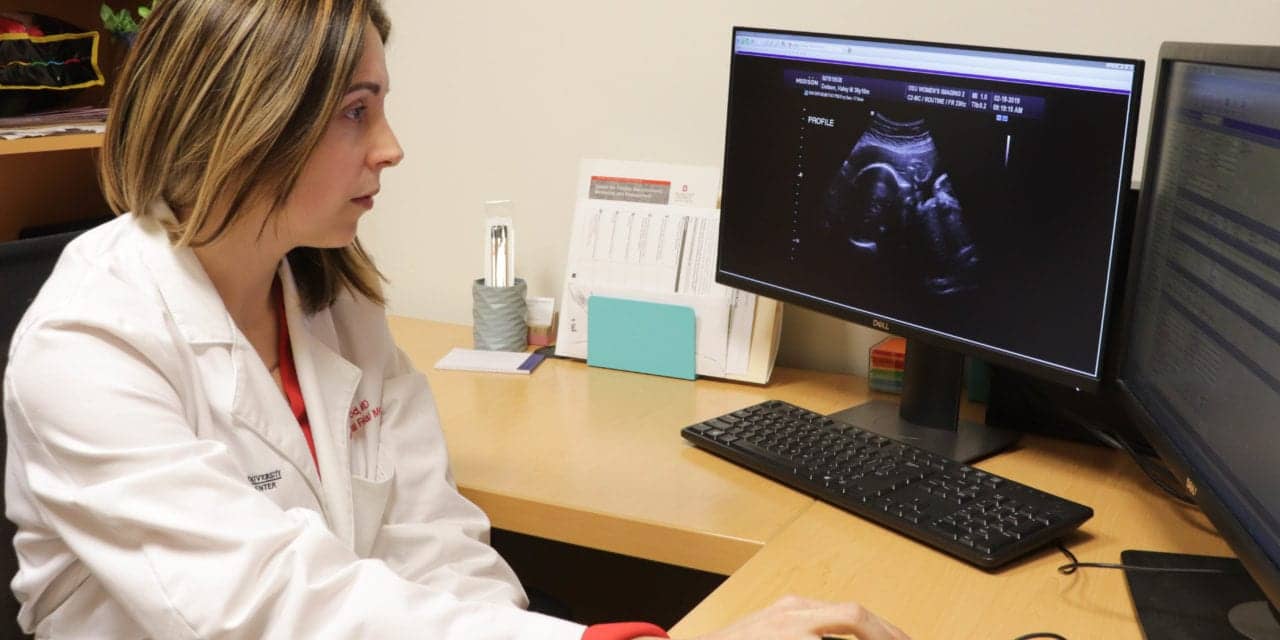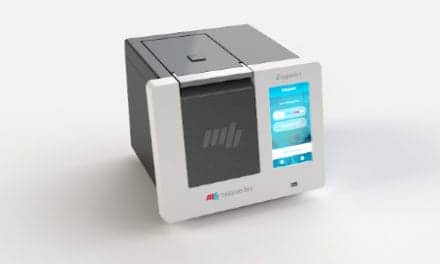In a new study, researchers at Ohio State University’s Wexner Medical Center evaluated a fast and easy test to accurately diagnose preeclampsia in just 3 minutes. The test uses a special red dye that reacts to unique proteins in the urine of pregnant women with preeclampsia. It can be given easily during a prenatal visit, providing an immediate diagnosis.
During pregnancy, about one in 20 women develop preeclampsia, which can be life-threatening to both mothers and babies. However, the condition is difficult to diagnose because symptoms often mimic those of a normal pregnancy, such as swelling and headaches. Managing the condition early is critical to keeping mother and child safe. Now, an innovative approach may help start treatment sooner by quickly identifying preeclampsia with a simple urine test.
“Giving birth is the only cure for preeclampsia, but it can develop as early as the second trimester,” explains Kara Rood, MD, lead author of the study and a maternal-fetal medicine physician at Ohio State University. “The quicker we identify women with the condition, the better chance they have of carrying their babies to full term and having a healthy delivery.
“Without the certainty of this test providers tend to be overcautious, because this is definitely a condition that we can’t allow to go untreated,” adds Rood. “This test helps us to quickly provide care to women with preeclampsia, while avoiding unnecessary admissions or even early deliveries.”
Researchers expect the test to gain FDA marketing authorization in the next few years, so that OB/GYNs nationwide can use it to identify cases of preeclampsia. Rood hopes it will also be available for women to use at home to monitor complications during pregnancy.
For further information, visit Ohio State University.
Reference
- Rood KM, Buhimschi CS, Dible T, et al. Congo red dot paper test for antenatal triage and rapid identification of preeclampsia. EClinical Medicine. 2019;8:47–56; doi: 10.1016/j.eclinm.2019.02.004.
Featured image: Kara Rood, MD, reviews data from a study of a fast and easy way to diagnose preeclampsia with a simple urine test.





